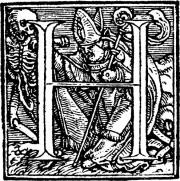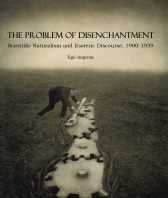When I press the “publish” button for this post I shall immediately duck and take cover from allegations of whiggishness. The title of the lecture I post below, “Why did Newton believe in alchemy?” is precisely the sort of question-asking that has recently been criticised in the history of science blogging community in a recent upsurge of discussions about whig history and misapplication of categories in narrating or explaining science history. As Rebekah Higgitt wrote on teleskopos back in 2010, the “Newton as alchemist” trope seems to be a perennial surprise, and she suggested (I think convincingly) that the very fact that journalists but also scholars continue to introduce this topic precisely as a surprise – no doubt to attract the attention of their audience – is actually just perpetuating the mystery rather than leaving it behind and moving on. The problem is not only that we should start by acknowledging the state-of-the art established knowledge in the field (which in the case of Newton means at least departing from such works as Robert Westfall’s Never at Rest, and Betty Jo Teeter Dobbs’ The Janus Face of Genius) rather than by perpetuating the research questions of more than half a century ago. The problem is also that by playing the surprise card, we encourage people to ask questions that are poorly formulated and misleading in the first place. Questions such as, “was Newton a scientist or a sorcerer?” As Thony Christie will tell you, that’s a completely silly question, which cannot avoid distorting the material it’s supposed to clarify. To put it in histsci jargon, the question is too far removed from “actor’s categories” to make any sense.
(We may illustrate the point with a bit of improvised fantastical sci-fi. A 17th century alchemist finds the elixir of life and drinks it. Not knowing exactly how the potion works, he is knocked out by the intoxication and falls into a centuries long state of torpor. Waking up almost 400 years later, he tries to seek out some of his colleagues in this strange place he finds himself. He hears about this amazing thing called a “particle accelerator”, burried somewhere in the centre of old Europe, and manages to trace down someone who works there. However, inquisitively asking about the practices of this latter-day “natural philosopher”, the alchemist finds himself bewildered, and surprised that his conversation partner is not able to give a satisfying answer to the pressing question: are those subterranean workers mathematicians or alchemists? Where to place their work within the branches of natural philosophy? The time-travelling alchemist’s dilemma is the contemporary historian’s “actor’s category”-dilemma in reverse; when encountering a future “natural philosopher” he falls victim to the same fallacy as the person who asks whether Newton was a sorcerer or a scientist.)
This is a trap that William Newman perhaps fell into in his popular lecture on “Why Newton believed in alchemy”, given at the Perimeter Institute in Waterloo, Ontario, on October 6th, 2010. In fact, Rebekah’s reflection on the way we present such figures was sparked precisely by a review of this very lecture in the New York Times two years ago.
 Critics of the whig interpretation of history – especially history of science – might take issue not only with the popular framing, but with the overall methodology for which Newman, together with Larry Principe, is famous. Simply put, their way to rehabilitate “alchemy” as a suitable subject for historians of science does not only rely on placing it squarely within early modern natural philosophy, but also proceeds to show how it was “real science” and not just pseudoscientific, esoteric mumbo-jumbo. Newman and Principe do this by reconstructing actual “chymical” experiments, reproducing them and demonstrating what was really going on in terms of the best chemistry of today.
Critics of the whig interpretation of history – especially history of science – might take issue not only with the popular framing, but with the overall methodology for which Newman, together with Larry Principe, is famous. Simply put, their way to rehabilitate “alchemy” as a suitable subject for historians of science does not only rely on placing it squarely within early modern natural philosophy, but also proceeds to show how it was “real science” and not just pseudoscientific, esoteric mumbo-jumbo. Newman and Principe do this by reconstructing actual “chymical” experiments, reproducing them and demonstrating what was really going on in terms of the best chemistry of today.
There may be an element of whiggishness ingrained in this methodology – as if implying that when “chymistry” (Newman and Principe’s preferred term for pre-Boylian chemistry/alchemy) was itself finally transmuted into “scientific chemistry”, it had shed its superfluous (and superstitious?) non-scientific garbs and let the real scientific core progress unhampered. The implication would be that those “murky” and non-progressive elements of pre-scientific alchemy are still as unreputable a topic for serious study as they were before.
While these problems might be ingraiend in the methodology, they don’t have to be (see my two previous posts on this, here and here – and cf. the two excellent posts on Newman at Ether Wave Propaganda, here and here). Furthermore, one has to be most un-geeky indeed not to find a contemporary demonstration of transmutations from silver to gold fascinating. To me, at least, the fascination and admittedly present-centered (how could it not be?) curiosity about what might have been going on is enough to recommend checking out Newman and Principe’s project. There are of course also other strong methodological arguments for at least seeing such demonstrations as complementary to historical interpretations that value the actor’s categories, and help us understand the past in a more complete way, but I will not bore my readers with such matters right now.
Instead I am getting ready to take cover, as I present this clip of Newman’s lecture on Newton and alchemy. If you are patient enough to watch the whole clip, you will not only learn how to grow the “Tree of Diana” in a test tube, but also see a live “transmutation” of a silver coin into gold – and hear how this convincing illusion could be created. Check it out.
![]()
This blog post by Egil Asprem was first published on Heterodoxology. It is licensed under a Creative Commons Attribution-ShareAlike 3.0 Unported License.







Now then, how to leave an effective comment … I know, I’ll put it like this:
Newton didn’t believe in alchemy: he did it. The use of the word belief just kinda hints at its being false. No-one really says a scientist believes in science … because belief implies faith implies irrationality, therefore …
Now, alchemy was mumbo-jumbo, stuffed to the gunwhales with esoteric terminology, ritual etc, and it was also an early form of industrial chemistry. You can divorce the two elements, but it’s perhaps unwise.
So. there you have it, and I didn’t mention Bacon once …
“Belief” is certainly another misleading category, even in this context – thanks for pointing that out.
Newton accepted alchemy as an epistemic discipline.
[…] William Newman demonstrates alchemical transmutation – with a few notes on whiggishness […]
[…] William Newman demonstrates alchemical transmutation – with a few notes on whiggishness (heterodoxology.com) […]